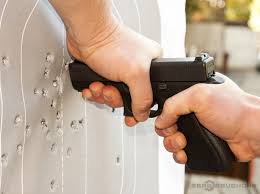This is an interesting video for a few reasons.
- Every time someone promotes any grappling in a self-defense context, the same insipid, moronic comment is trotted out “you will get your head kicked in by his buddy”. This is on the same level as “ma booger hook” for intelligence quotient. This video amply demonstrates why context matters and there is no hard and fast, black/white rule. It was the grappler who had someone essentially helping and the non-grappler who was outnumbered. This is life. You may be flying solo, but you may also often have people by your side. Well, you do if you are not a keyboard warrior who spends more time on the ‘net in his mother’s basement that is. In that case, you probably won’t be going out on the town with a friend.
- Note the complete and utter domination of the grappler. The other guy literally cannot do anything. He is as helpless as a baby. Note also that he is not particularly smaller than the grappler, nor is he physically frail or weak, but it is irrelevant. The grappler has zero problems doing whatever he decides to do. THIS is the reality that non-grapplers fail to grasp. They will pontificate about how they can eye gouge, or hit the balls, or access a weapon while the “sport grappler” is doing his thing when the truth is they will be controlled and their actions will be completely dictated by the experienced grappler. Find a moment in that video when the non-grappler had any realistic chance to do any of the typical counter moves advocated by some people. Hint: you won’t find it.
For all that he did right, the grappler had an ENORMOUS mindset failure. William April continually harps on the fallacy of projecting your world view on others. Here is a perfect example of why that is dangerous. The grappler obviously felt the fight was over. The other guy however, thought otherwise. This is not a mistake that is limited to grapplers. Most people fall into this. That is why we need to study and understand how criminals think as well as act. Do not fall into the trap of thinking that the fight is over until you have made sure it is over

